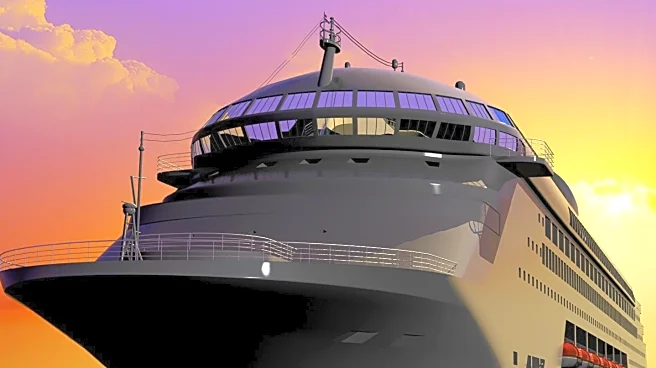What's Happening?
Cruise industry insiders have disclosed the psychological strategies employed to enhance passenger satisfaction on cruise ships. These tactics include the 'blue mind effect,' which suggests that proximity to water induces a meditative, relaxed state in the human brain. Cruise ships are designed to maximize ocean views, with floor-to-ceiling windows and private balconies, to leverage this effect. Additionally, the limited cell service on cruises encourages passengers to disconnect from technology, promoting a digital detox that reduces stress and anxiety. The combination of relaxation, new destinations, and onboard entertainment contributes to the overall positive experience for cruise passengers.
Why It's Important?
Understanding the psychological tactics used by cruise lines can provide insights into the broader travel and hospitality industry. By creating environments that promote relaxation and digital disconnection, cruise lines enhance passenger satisfaction and loyalty, which can lead to increased bookings and revenue. These strategies may be adopted by other sectors within the travel industry, such as hotels and resorts, to improve guest experiences. The emphasis on mental well-being and stress reduction aligns with growing consumer demand for wellness-focused travel options.
Beyond the Headlines
The use of psychological tactics in the cruise industry raises ethical considerations about the manipulation of passenger experiences. While these strategies aim to enhance satisfaction, they also highlight the power of design and environment in shaping human behavior. As the travel industry continues to evolve, there may be increased scrutiny on the ethical implications of using psychological techniques to influence consumer experiences and decisions.










